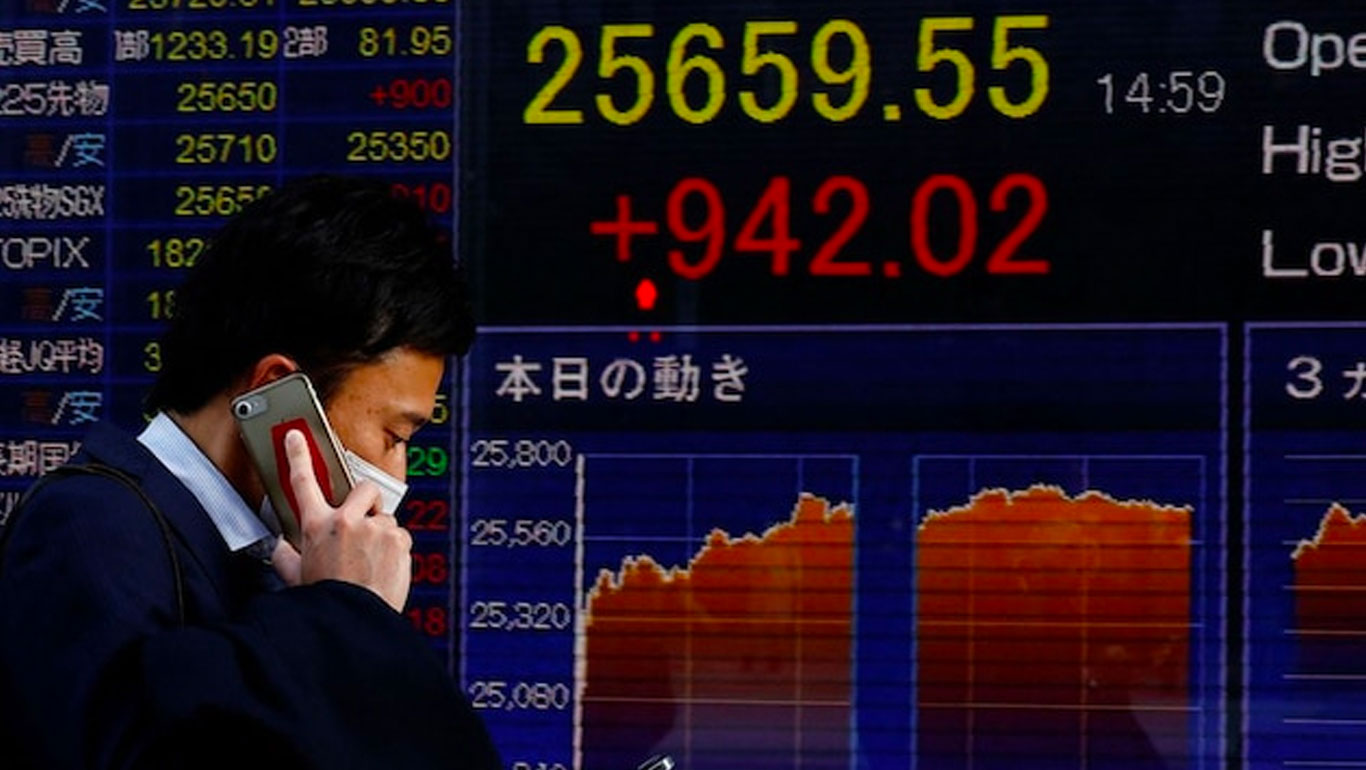LONDON, April 22 (Reuters) – World stocks fell to five-week lows and bond yields rose on Friday as investors fretted about rate hikes in the United States and the euro zone, while the yuan struck a seven-month low as lockdowns in Shanghai hit China’s growth prospects.
U.S. Federal Reserve Chairman Jerome Powell said on Thursday that a half-point interest rate increase would be “on the table” when the Fed meets in May, adding it would be appropriate to “be moving a little more quickly”.
His remarks strengthened market expectations of at least another half-percentage-point rate hike next month, and Nomura now expects 75-basis-point hikes at the Fed’s June and July meetings, which would be the biggest since 1994.
European Central Bank officials said on Thursday that the central bank might start hiking euro zone rates as early as July, while Bank of England interest rate-setter Catherine Mann said that borrowing costs would probably have to rise further.
Euro zone money markets now fully price in a 25 basis point rate hike by July.
“The Fed, the ECB and the Bank of England were pushing hawkish commentaries on the markets and markets have reacted,” said Monica Defend, head of Amundi Institute, though she added:
“For the euro area, we are more sceptical on the fragility of the economic cycle, there is big potential for a recession to take place in Germany and Italy.”
The euro zone is feeling the impact of the war in Ukraine.
The mayor of Mariupol made a new appeal on Friday for the “full evacuation” of the southern Ukrainian city which President Vladimir Putin says is now controlled by Russian forces.
Markets are also watching out for euro zone and U.S. flash purchasing managers’ data for April, with French data showing business activity grew at the fastest pace in more than four years, helped by fewer COVID-19 restrictions.
MSCI’s world equities index .MIWD00000PUS was down 0.41% at its lowest since mid-March, and was heading for a 0.7% drop on the week.
S&P futures were 0.18% softer after Wall Street indexes fell on Thursday, with the S&P 500 .SPX down 1.5% and the Nasdaq down 2%.
European stocks dropped 1.06%, with France’s CAC 40 down 1.39% ahead of Sunday’s presidential run-off vote. Britain’s FTSE fell 0.52%.
Selling pressure persisted in bond markets, driving five-year U.S. Treasury yields to 3.049% and two-year yields to 2.7620%, both at their highest since late 2018.
German two-year yields rose to 0.211%, their highest since early 2014.
In currency markets, the yuan hit a seven-month low and was on course for its worst week since 2019, as lockdowns in Shanghai take a bite out of growth.
Analysts at HSBC say a comprehensive easing package on all fronts, both monetary and fiscal, from Beijing is needed, including loosening measures in the property sector, which has been hit hard by restrictions on access to credit.
The dollar was down 0.25% against the yen at 128 after talk of joint Japan-U.S. FX intervention, though the euro fell 0.29% against the dollar to $1.0805, giving up Thursday’s bounce as nerves about Sunday’s French presidential election creep in.
The U.S. dollar index rose 0.26% towards recent two-year highs =USD.
Sterling fell to its lowest since late 2020 against the dollar, after British retail sales dropped in March by more than expected.
MSCI’s broadest index of Asia-Pacific shares outside Japan fell 1% to a five-week low, weighed down by a 1.6% loss for Australia’s resource-heavy index and a 0.86% drop in South Korean shares.
Japan’s Nikkei declined 1.63%.
Oil prices weakened, burdened by the prospect of interest rate hikes, weaker global growth and COVID-19 lockdowns in China hurting demand, even as the European Union weighed a ban on Russian oil.
Brent crude futures were down 55 cents, or 0.57%, at $107.86 a barrel, while U.S. West Texas Intermediate (WTI) crude futures declined 50 cents, or 0.48%, to $103.30.
Spot gold was last down 0.09% to $1,949.90 per ounce.
(Additional reporting by Tom Westbrook in Singapore; Editing by Edwina Gibbs, Christian Schmollinger and Tomasz Janowski)







 DOWNLOAD
DOWNLOAD





